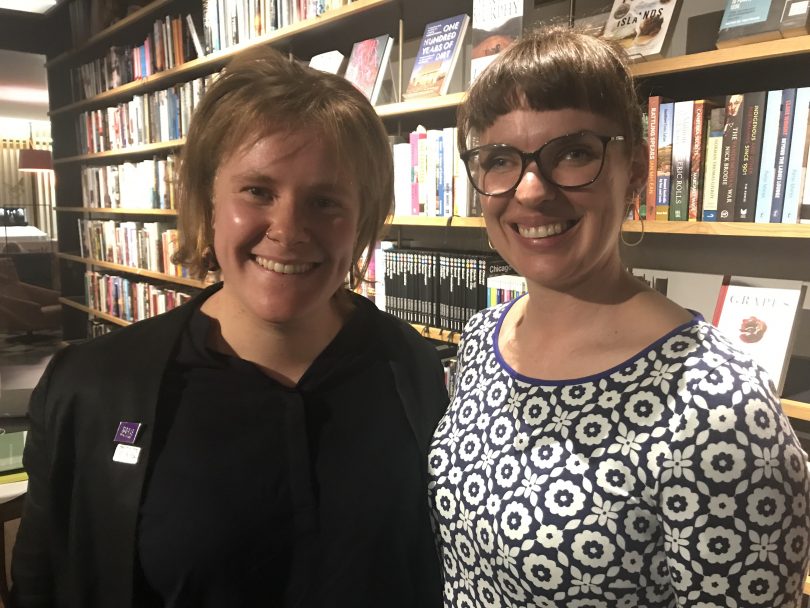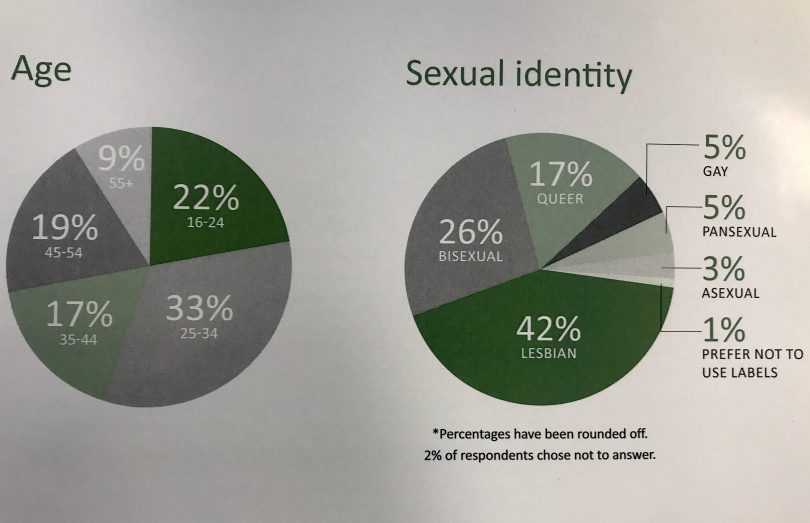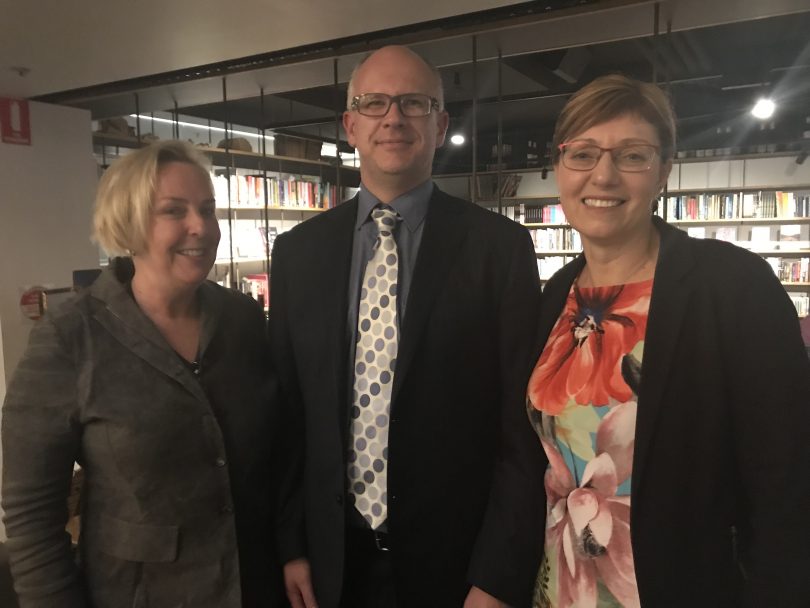
Isabel Mudford from the AIDS Action Council and Amber Hutchison from the Women’s Centre for Health Matters spoke about the research findings at the report launch. Photos: G Jacobs.
Research that’s both heartbreaking and groundbreaking has painted a vivid picture of how challenging health needs can be for women in the LGBTIQ+ community in Canberra.
Working together, the Women’s Centre for Health Matters and the AIDS Action Council survey found, for example, that 60 per cent of the 400 women in the sample rated their mental health fair, poor or very poor, significantly higher when compared to women in the general population.
While mental health improved with age and most women above 55 reported their mental health as good or excellent, only 31 per cent of women aged between 16 and 24 felt that way about themselves. The small number of trans women surveyed listed mental health as one of their top three health issues.
Other alarmingly high findings included that half of all respondents had experienced sexual, domestic or family violence (59 per cent), and 13 per cent had experienced all three types of violence.
“It’s important to emphasize that mental health issues are not due to women being trans,” Philippa Moss from AIDS Action said. “This largely occurs as a result of external factors, predominantly how the world perceives and treats trans people, which translates into stigma (both internal and external) and minority stress.”
She added that abusive behaviour can occur in any type of relationship and the impacts are felt throughout all communities. “We all deserve to feel valued, respected, and safe”.

400 respondents were surveyed, creating valuable qualitative and quantitative data from LGBTIQ+ women’s health. Image: Supplied.
Researchers Amber Hutchison from the Women’s Centre for Health Matters and Isabel Mudford from the AIDS Action Council said the experience of reading so many testimonies while compiling the research had been profound.
“I started messaging my partner with all these random quotes about what people had been through with regard to their sexual health, with violence, what they’d been through at school, and the discrimination they’d experienced from health providers. It was deeply moving,” Mudford says.
“Working in this field you do get a bit desensitised with these experiences but this project was a chance to get re-sensitised to how much people’s lives can be affected. Very often we don’t have the data to back up this stuff and we do talk from lived experience but the data gives us a chance to go beyond that.”
The survey looked at women (cis-gendered, gender diverse, trans, and intersex) who are sexually and/or romantically attracted to women.
Moss says the results reinforce a growing body of evidence showing that sex and gender diverse women are distinct from both the general populations and each other.
“These population groups face multiple barriers to good health,” she says. “We need appropriate health and wellbeing policies, community initiatives, and other service responses to be developed, informed by an understanding of the individual health needs of these population groups, as well as their experiences of mainstream health services.”

AIDS Action Council executive director Philippa Moss, AIDS Action Council president Adam Stankevicius and ACT health minister Rachel Stephen-Smith at the report launch.
Recommendations from the survey focus on better access to mental health and sexual and reproductive health services for LGBTIQ+ women and, critically, much better awareness and training among health care providers for these women’s specific needs.
A huge 76 per cent of the women surveyed said that they had experienced barriers to finding good health care including homophobia, discrimination, harassment, lack of access and other problems.
Doctors should certainly indicate clearly that they are LGBTIQ+ friendly, says Mudford, “but they also need to back that up with an ongoing commitment to educating themselves and a commitment to serving the community.
“There is, for example, little understanding of complex trans health issues among many GPs. The knowledge is just not there and even specialists don’t advertise as well as they could or should, which can make it incredibly difficult for trans women to access services.”
She says that while the survey’s aim was to find out where the barriers to good health care were, “it’s not all bad. It’s powerful, fun and exciting to be part of this community and to make it stronger.
“This is a wonderful place to be queer – we want to make it better.”
You can read the report here.













